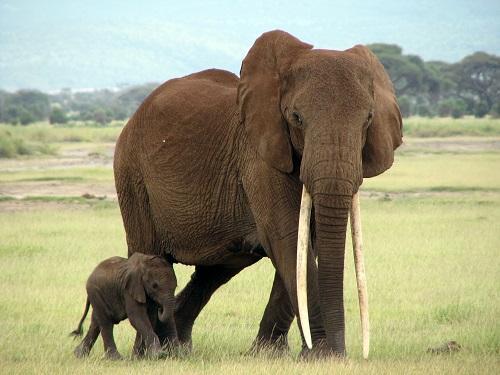
 Six tons of confiscated ivory will be destroyed on Friday at the National Wildlife Property Repository located about 10 miles north of Denver.
Six tons of confiscated ivory will be destroyed on Friday at the National Wildlife Property Repository located about 10 miles north of Denver.
For the last 25 years, it’s been illegal to buy or sell ivory internationally and, when federal officials confiscate ivory, it gets sent to the Repository. Steve Oberholtzer is with the Fish and Wildlife Service and is overseeing Friday's “ivory crush.”
"We have everything from whole tusks, large tusks down to very small tusks from immature elephants and we have lots of carvings," Oberholtzer said. "Everything from two foot high intricate carvings to small carvings that are an inch, inch-and-a-half across."
There’s also a huge container of ivory jewelry slated for crushing. The U.S. government says it wants to send a message to poachers worldwide to stop killing elephants. And, it wants to stop smugglers from bringing ivory to this country, said Oberholtzer.
"We’ve seen smuggling coming in through sea cargo, through air cargo, and we’ve also seen unwitting tourists coming back from abroad with elephant ivory," Oberholtzer added.
Oberholtzer also says that officials spent some time figuring out the best way to destroy the stockpile using other "ivory crush" events like the ones in Kenya and Gabon where confiscated ivory was destroyed by burning.
The U.S. is taking a different approachf: the ivory will be crushed and destroyed
“We’ll have a big commercial rock crusher at the site and we’ll fit it with a front-end loader," Oberholtzer said. "Everything that gets spits out the other end will be 3/4 of an inch or less."
A wide array of spectators will attend the "ivory crush" including members of the media alongside international wildlife advocates.
Paula Kahumbu, representing Nairobi-based WildlifeDirect, spoke to Ryan Warner from New York before her trip to Colorado.
We also hear from Godfrey Harris, a member of the International Ivory Society, who says destroying the ivory is the wrong approach.








